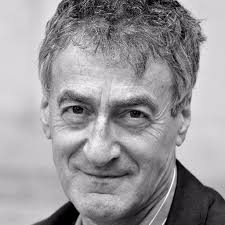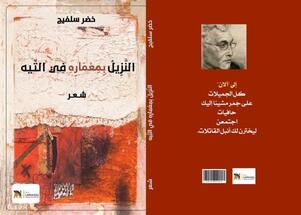-
Vladimir Putin’s threats

On March 5, 1946, exactly 75 years ago, Winston Churchill, made a speech in Fulton, Missouri that would go down in history. In it he talked about an “Iron Curtain” that had descended across Europe.
“From Stettin in the Baltic to Trieste in the Adriatic,” Britain’s wartime prime minister famously declared. Churchill wanted to emphasize the threat posed by the Soviet Union, led by Joseph Stalin, at the start of the Cold War - and to ensure that the Americans got the message as President Harry Truman sat next to him.
Fast forward three-quarters of a century and something similar, though less dramatic, happened in London the other day. In an unusualmove, two officers of MI5, Britain’ssecurity service, warned of attemptsto target Vladimir Putin’s critics resident in the UK.
It was not the first time the British government has expressed alarm about the dangers posed by Moscow. In 2018 in Salisbury, Putin’s agents tracked down Sergei Skripal,a defector from Russian military intelligence. Skripal and his daughter were poisoned with novichok, although both survived. “We probably hadn’t calculated just how determined and ruthless our adversary might be,” an officer identified only as Tom told Sky TV.
And before that in 2006, Alexander Litvinenko, who had defected from the FSB, Russia’s security agency, was poisoned in London, this time with Thalium. In a statement before he died, he addressed Putin directly: “You have shown yourself to be as barbaric and ruthless as your most hostile critics have claimed.“A subsequent British inquiry into Litvinenko’s death found that two Russian agents, acting under the direction of the FSB, were responsible, and that they were probably approved by Putin.
Last week MI5 warned that the Kremlin continues to take “quite an active interest” in a handful of individuals in the UK. But this is not just about the safety and security of Russiansliving in Britain: the larger issue is about Putin’s contempt for international law.
Both Britain’s security service and Downing Street have come under pressure to show they are taking the threat from Moscow seriously. Last year MI5 and other UK spy agencies were accused of taking their “eye off the ball” in a highly critical report produced by parliament’s intelligence and security committee.
Publication of the report was delayed by Conservative Prime Minister Boris Johnson until after hisDecember 2019 election victory, partly to avoid negative coverage about whether Russian disinformation had an impact on the landmark Brexit referendum vote in 2016.
Given that leaving the European Union was the most significant, divisiveand – opponents argue – damaging decision in British history since the second world war, the Kremlin’s role is an entirely legitimate line of enquiry.
Russian interference in Brexit is treated as a less serious question than the parallel issue of its alleged involvement in the US election of 2016, which brought Donald Trump to power– and arguably benefited Putin due to the populist, disruptive and transactional character of the Republican in the White House.
Evidence of Moscow’s contribution to the UK’s decision to leave the EU is far from definitive. Russia experts have expressed doubtsabout coordinated interference in the referendum. Some argue that it vastly overestimatesthe Kremlin’s power, presenting Putin asomnipotent and well-organised, rather than the leader of a chaotic state bureaucracy.
Many have observed too that Russia had both economic and political interests to maintain a strong EU –mainly as a bulwark against the US. The consensus suggests that interference was probably low-level and uncoordinated – a moderate nuisance rather than a major attack – and certainly less than Britain’s own right-wing press.
But Putin refuses to behave any better.In recent months Downing Street has sought to ramp up pressure on Moscow, sanctioning a group of officials accused of being involved in the poisoning of opposition leader Alexei Navalny – and echoing the actions of EU member states, despite Brexit.
In the current global geo-political landscape there is much debate in western countries about whether a greater threat is posed by Russia or China. At the height of the Cold War, the Soviet Union was described as “Upper Volta with missiles” – combining an underdeveloped economy with disproportionate military might.
Russia was defined by the US Rand Corporation in 2019 as “a well-armed rogue state that seeks to subvert an international order it can never hope to dominate.”
China, by contrast, has the world’s biggest population and is on the way to becoming the largest economy on the planet.It is also behaving increasingly assertively – in the South China Sea, over Hong Kong and rejecting any criticism of the racist oppression of its Uighur Muslim minority. Beijing is seen a less immediate threat but a much greater long-term challenge than Moscow.
Still, Putin’s behaviour remains a serious problem even if not characterised as a new Cold War. MI5’s warning was interpreted as a wake-up call to highlight the danger of Russia’s determination to get its own wayand to undermine the security of western democracies in thesechallenging times.

BY: IAN BLACK
You May Also Like
Popular Posts
Caricature
BENEFIT Sponsors BuildHer...
- April 23, 2025
BENEFIT, the Kingdom’s innovator and leading company in Fintech and electronic financial transactions service, has sponsored the BuildHer CityHack 2025 Hackathon, a two-day event spearheaded by the College of Engineering and Technology at the Royal University for Women (RUW).
Aimed at secondary school students, the event brought together a distinguished group of academic professionals and technology experts to mentor and inspire young participants.
More than 100 high school students from across the Kingdom of Bahrain took part in the hackathon, which featured an intensive programme of training workshops and hands-on sessions. These activities were tailored to enhance participants’ critical thinking, collaborative problem-solving, and team-building capabilities, while also encouraging the development of practical and sustainable solutions to contemporary challenges using modern technological tools.
BENEFIT’s Chief Executive Mr. Abdulwahed AlJanahi, commented: “Our support for this educational hackathon reflects our long-term strategic vision to nurture the talents of emerging national youth and empower the next generation of accomplished female leaders in technology. By fostering creativity and innovation, we aim to contribute meaningfully to Bahrain’s comprehensive development goals and align with the aspirations outlined in the Kingdom’s Vision 2030—an ambition in which BENEFIT plays a central role.”
Professor Riyadh Yousif Hamzah, President of the Royal University for Women, commented: “This initiative reflects our commitment to advancing women in STEM fields. We're cultivating a generation of creative, solution-driven female leaders who will drive national development. Our partnership with BENEFIT exemplifies the powerful synergy between academia and private sector in supporting educational innovation.”
Hanan Abdulla Hasan, Senior Manager, PR & Communication at BENEFIT, said: “We are honoured to collaborate with RUW in supporting this remarkable technology-focused event. It highlights our commitment to social responsibility, and our ongoing efforts to enhance the digital and innovation capabilities of young Bahraini women and foster their ability to harness technological tools in the service of a smarter, more sustainable future.”
For his part, Dr. Humam ElAgha, Acting Dean of the College of Engineering and Technology at the University, said: “BuildHer CityHack 2025 embodies our hands-on approach to education. By tackling real-world problems through creative thinking and sustainable solutions, we're preparing women to thrive in the knowledge economy – a cornerstone of the University's vision.”
opinion
Report
ads
Newsletter
Subscribe to our mailing list to get the new updates!






















